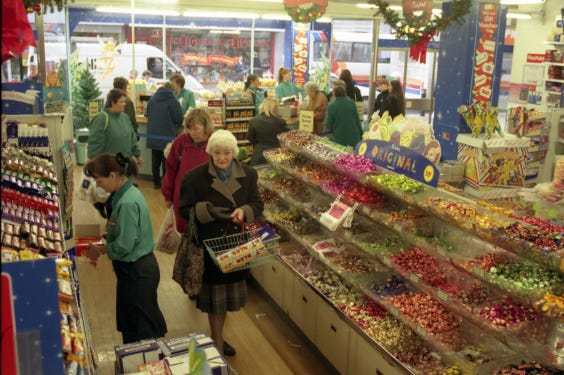No, Woolworths isn’t returning and neither is a healthy UK press
Britain is becoming an land of information deserts and that suits those at the top

When various journalists in the national and local online press fell for the fake Woolworths Twitter account, The Press Gazette, which is very keen on being snide, called them “churnalists” — a term I first read in Nick Davies’ excellent Flat Earth News, which refers to hacks who simply churn up stories from press releases and other pointless chaff.
I could also sneer at those journalists whose bylines are lashed to absolute bullshit stories, many of which were simply given fresh headlines when what was already obvious was confirmed by the Woolworths trademark owners Very Group — Woolworths isn’t coming back and you need to get over all that Pick ‘n’ Mix nostalgia — but I won’t.
I know the kind of newsrooms those journalists are working in; nasty little pressure cookers where editors want eyeballs and don’t much care how they’re achieved, where news-editors harangue you if a competitor has a story, even if it’s some frothy fact-free bullshit like the Woolworths confection (and yes, that pun is deliberate).
It’s easy — though unfair — for The Press Gazette to roll its eyes about the lack of fact checking in evidence at many of the biggest publications, but its staff know why that situation has occurred. The trade paper reports extensively on ‘reorganisations’, ‘rationalisations’, ‘synergies’, and all the other synonyms companies use for workers getting shitcanned and executives getting bonuses. The UK press has been hollowed out and is now top-heavy with well-paid execs and threadbare at reporter level.
When a journalist, tethered to a desk and given a target of 15 stories a day, pumps out something like the Woolworths story, it is not because they are proud of it. It is because they need to hit their targets for stories produced and traffic generated, and the big board — showing the endless pumping demands of Chartbeat, the editorial analytics software — is looming over them like Big Brother from the billboards of Airstrip One.
I didn’t do a Masters in journalism. I left university, spent a summer organising entertainments and events at a language camp for teenagers, then got my first professional job at Pensions World magazine. That was my training and I got paid to do it. I feel desperately sad for people who have spent time and money on an NCTJ qualification — it’s a good one — only to find themselves wielding a blunt pickaxe in the content mines, rewriting other outlets’ stories and ginning up stuff from press releases and paparazzi pictures. It’s a shit life and a shit business when you’re called a ‘reporter’ but don’t even have the opportunity to break stories.
On the same day that The Press Gazette reported on the Woolworths farrago, it ran a piece on research that suggests the percentage of the UK population consuming little or no news and therefore most susceptible to false stories grew from 6% near the beginning of the pandemic to 15% in August. At a time when people need facts and solid reporting more than ever, the number of people not getting that is rising.
There are four groups to blame for this situation — the tech giants who have gobbled up advertising revenues without taking real responsibility for the information environment that has created, the publishers who have dived ever deeper into a pit of pointless shit that pays, columnists and TV reporters who have destroyed the public’s trust in journalism, and politicians who have undermined the teaching of media literacy since the Thatcher era.
I’d truly love to end this newsletter with a positive conclusion but we’re about as likely to get a healthy media again as we are to see Woolworths back on the high street.
In fact, to hijack a punchline almost as old as Woolworths, you’ve got two hopes of having a UK press and media fit for purpose — no hope and Bob Hope. And Bob Hope has been dead since 2003.


